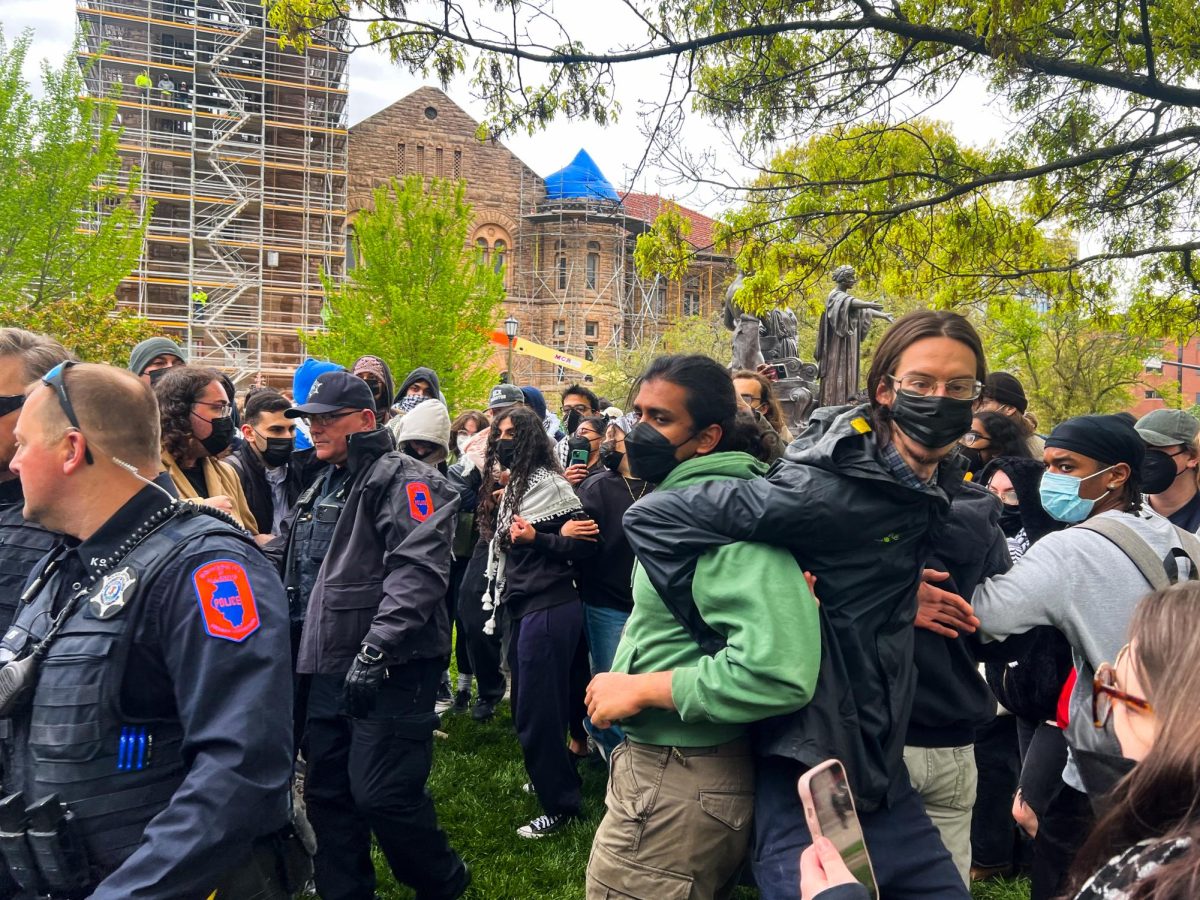Imad Rahman walked into the Courtyard Cafe on Sept. 11, 2001, to crowds of students gazing at mounted TVs. They looked on in horror as thick black smoke poured from a New York skyscraper, and continued watching long enough to see the second plane hit.
While the attacks instilled fear and sadness in all American citizens, Rahman said the Muslim community was hit by a “double whammy” on 9/11. Not only did they feel grief as Americans, they also became targets of hatred and discrimination in the aftermath of the attacks.
“We felt the feelings any other Americans felt that day, but on top of that, it was people doing it in the name of my religion,” Rahman said. “Things were never going to be the same.”
Rahman was president of the University Muslim Students Association at the time of the 9/11 attacks. Following the event, the University, the city of Champaign and community organizations offered support to the local Muslim population.
In the ten years following 9/11, Muslim Americans have become more assertive of their identity and focused on community activism to challenge the notion that Muslims are dangerous or extremist.
Get The Daily Illini in your inbox!
*Religion under attack*
Matthew Abtahi, senior in LAS, said the emphasis placed on the terrorists’ religion has shined a bad light on Islam in the past decade. Most Muslims would agree that the views of these extremists aren’t those of the Islamic faith, nor do they abide by Islamic customs, he said.
Muslim beliefs are a “direct contradiction to blowing up a building of 3,000 unarmed citizens,” Rahman said.
Islam, a relatively young religion in the United States, had not had a chance to fully establish itself before 2001, Rahman said. Muslims across America made a point to reconstruct their religion’s image after it was tarnished by the attacks.
Muslim Americans everywhere have put community outreach in overdrive in the past ten years, Rahman said. A stronger representation in their community has become the building block in repairing Islam’s shattered image. Post 9/11, there has been more interest in Islam than there ever was before, Rahman said.
“The Muslim community in America has tried hard to change the negative light into a positive one, or at least an understanding one,” Abtahi said. “As time has gone on, America has really learned the difference between the cause and beliefs of the Taliban and what Islam really is.”
*Recommitting to faith*
A decade after 9/11, Ismail Umer, senior in LAS, said although people don’t associate him with Muslim terrorists, he still feels pressure to represent Muslim Americans as people who are just like other Americans. He was taught to volunteer and to make American friends because he was told his actions represent the entire Muslim community.
After 9/11 and for the first time in his life, Umer felt nervous to express his faith in public. He temporarily stopped praying five times a day, an Islamic custom he previously followed.
If people could somehow misconstrue his faith, he said, he was unsure he wanted to follow it.
“Before, the mosque was a place of spirituality and peace,” Umer said. “But after the attack we got metal grates over our windows.”
Umer has since gotten over his fear of not being accepted for his religion. Since coming to the University, he has returned to his faith. Rahman said although some started to stray from Islam after the attacks, many strengthened their faith.
*Reversing public sentiment*
Jasmine Nammari, sophomore in LAS, recalls instances of bullying and racism immediately following the attack. Although she “somehow escaped it,” her brother was called names in school.
“I almost wanted to go through the ridicule because it was very unfair for people who were born dark-skinned to get ridiculed,” Nammari said.
Because of her light hair and skin tone, she said most people are shocked to find out her religion.
Unlike Umer, Nammari’s faith strengthened after the event. She took a stand for what her religion represented. She said she continues to notice people in college reacting differently to her religion.
“In middle school, high school and elementary school no one cared,” she said. “When I got to college people started introducing me as ‘She’s Arab.’”
Nammari and other Muslims have had to walk a fine line since 9/11. Rewiring a nation’s beliefs on a religion or an entire population, while still proudly practicing their faith, has been no easy task.
“It’s a delicate balance — we want to be sensitive to what happened that day, but we don’t want to be apologetic,” Rahman said. “Apologizing makes it seem like the majority of Muslims were involved with what happened. Most of us couldn’t believe what was happening and strongly condemned it.”







